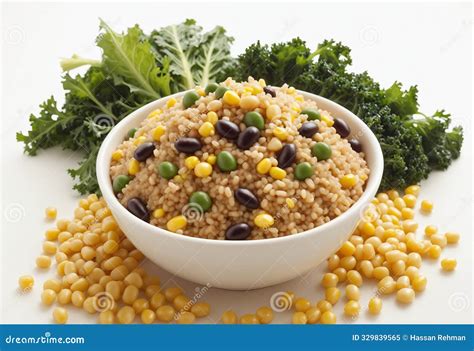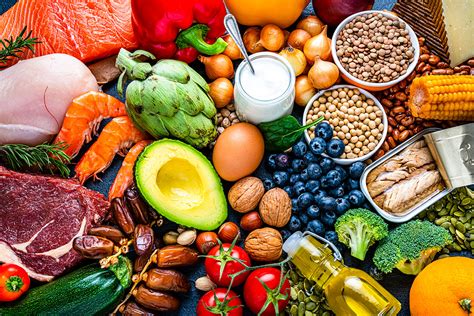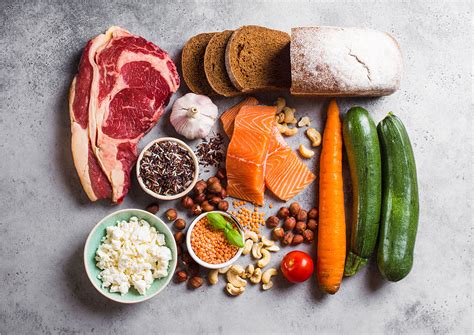What specific macros fuel peak male performance & sustained energy without crash?

The Foundation of Peak Male Performance: Understanding Macronutrients
For men striving for peak physical and mental performance, enduring energy, and robust health, the adage “you are what you eat” rings especially true. It’s not just about consuming enough calories, but about strategically balancing macronutrients — carbohydrates, proteins, and fats — to fuel the body without the dreaded energy crashes. Each macro plays a unique and vital role, and understanding their specific functions is the first step towards unlocking consistent high performance.
Carbohydrates: Your Primary Energy Source (Without the Crash)
Carbohydrates are the body’s preferred and most efficient source of energy. However, the type of carbohydrate makes all the difference in sustaining energy levels versus experiencing a rapid spike and subsequent crash. For sustained performance, focus on complex carbohydrates:
- Whole Grains: Oats, brown rice, quinoa, whole-wheat bread and pasta provide a slow, steady release of glucose into the bloodstream, preventing energy dips.
- Starchy Vegetables: Sweet potatoes, potatoes, corn, and peas offer nutrient-dense energy.
- Legumes: Beans, lentils, and chickpeas are excellent sources of complex carbs and fiber, contributing to satiety and stable blood sugar.
- Fruits: While containing natural sugars, fruits also pack fiber, vitamins, and antioxidants. Consume in moderation and pair with protein or fat for better glycemic control.
Avoid excessive intake of simple, refined carbohydrates (sugary drinks, white bread, pastries) which cause rapid blood sugar spikes and subsequent crashes, leaving you feeling sluggish and unfocused.

Proteins: The Building Blocks for Strength and Satiety
Protein is essential for muscle repair and growth, hormone production, and overall cellular function. For men, adequate protein intake is crucial for maintaining lean muscle mass, which supports metabolism and strength. It also promotes satiety, helping to prevent overeating and maintain a stable energy level throughout the day.
- Lean Meats: Chicken breast, turkey, lean beef provide complete amino acid profiles.
- Fish: Salmon, tuna, cod offer high-quality protein and often beneficial omega-3 fatty acids.
- Eggs: A complete protein source, versatile and nutrient-dense.
- Dairy: Greek yogurt, cottage cheese, milk provide protein and calcium.
- Plant-Based Sources: Tofu, tempeh, edamame, lentils, and various protein powders can fulfill protein needs for those following vegetarian or vegan diets.
Distribute protein intake evenly across meals to optimize muscle protein synthesis and maintain consistent energy levels.

Healthy Fats: Essential for Hormones and Sustained Energy
Often demonized, healthy fats are critical for male health, hormone production (including testosterone), brain function, and the absorption of fat-soluble vitamins (A, D, E, K). They provide a concentrated source of long-lasting energy, contributing to satiety and preventing energy crashes.
- Monounsaturated Fats: Found in avocados, olive oil, and nuts (almonds, cashews, pecans).
- Polyunsaturated Fats: Including Omega-3s (fatty fish like salmon, mackerel, chia seeds, flaxseeds, walnuts) and Omega-6s (though typically abundant in Western diets, balance is key).
- Saturated Fats: While once heavily restricted, moderate intake from sources like grass-fed beef, eggs, and coconut oil can be part of a healthy diet. The emphasis should be on healthy, unprocessed sources.
Avoid trans fats found in many processed and fried foods, which have detrimental effects on cardiovascular health and overall well-being.

The Optimal Macro Balance: Tailoring to Your Needs
While general guidelines exist, the “optimal” macro balance for peak male performance is highly individual, depending on factors like activity level, body composition goals, and personal metabolism. However, a common starting point for active men might look like:
- Carbohydrates: 40-50% of total daily calories (higher for endurance athletes, lower for those focused on fat loss).
- Protein: 25-35% of total daily calories (around 1.6-2.2 grams per kilogram of body weight).
- Healthy Fats: 20-30% of total daily calories.
Experimentation and listening to your body are key. Pay attention to how different ratios affect your energy levels, recovery, and overall performance. Consider consulting with a nutritionist or dietitian to develop a personalized plan.

Beyond Macros: Timing and Hydration
Beyond the specific macro ratios, timing your meals and staying adequately hydrated are crucial for sustained energy. Eating consistent, balanced meals every 3-4 hours can help maintain stable blood sugar. Prioritize carbohydrates before and after workouts for immediate fuel and recovery, and ensure constant hydration throughout the day.
Conclusion
Fueling peak male performance and sustaining energy without crashes is an art and a science rooted in macronutrient understanding. By prioritizing complex carbohydrates for steady energy, sufficient lean protein for muscle and satiety, and healthy fats for hormonal balance and long-term fuel, men can optimize their diet for enduring vitality, mental clarity, and physical prowess. Strategic macro choices are not just about preventing crashes; they are about building a resilient, high-performing body ready to tackle any challenge.









